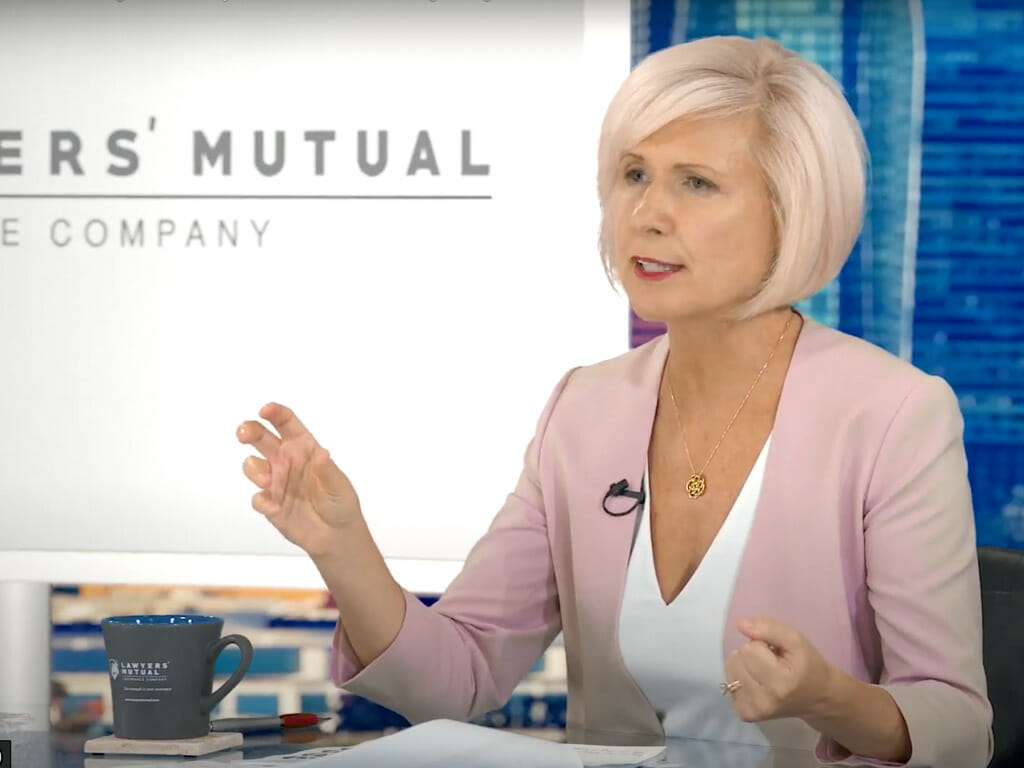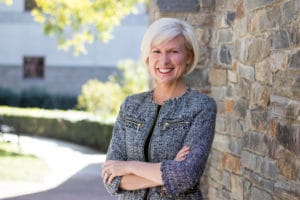Why Brafford Left the Legal Profession – and Found Another Way to Serve It

By her own admission, Anne Brafford didn’t come to CGU as a traditional student in search of her doctorate in Positive Organizational Psychology.
“It was to make a difference,” she says. Until April 2014, Brafford was a practicing lawyer, an equity partner in the Labor and Employment Practice Group of Morgan, Lewis & Bockius LLP.
That’s when, after 18 years in the profession, she had a moment of reckoning.
“I was at a big firm and the cultures in big firms can be pretty tough,” Brafford says, “Those situations require a lot of resilience and produce a lot of burnout. The stress can drain meaningfulness from the work.”
Brafford decided she wanted to learn scientific skills – what science had to say about how we build culture in the workplace, “a culture where people can really feel they’re at their best, thoroughly engaged, and working at high performance.”

She earned a Master’s of Applied Positive Psychology (MAPP) from the University of Pennsylvania and for five years served as a teaching assistant in the MAPP program for Professor Martin Seligman. She later served in the same role at CGU for Mihaly (Mike) Csikszentmihalyi, who passed away this fall, which gives her the unique claim of having supported the two co-founders of positive psychology.
“I just felt this draw, that this is my new path,” Brafford says about working with her two mentors in positive organizational psychology.
That is not to say, though, that she took the career redirect lightly. “I had wanted to be a lawyer since I was 11 years old,” Brafford says. “It was really, really hard. I’ve analogized it to ripping my arm off because being a lawyer was so much a part of my identity.”
Finding a New Path
Still, Brafford has not forsaken the legal profession; she’s just found another way to make a difference in that field.
“My focus always has been, from the beginning, and will be for the foreseeable future, the legal profession,” she says. “And via organizational psychology I can help law firms develop their cultures that, in turn, enable their employees to be their best and not just drain them. It’s less transactional and more transformational, making work feel like it is something meaningful and energizing.”
According to Brafford, CGU has the only doctoral-level Positive Organizational Psychology Program in the world; in other words, it’s a perfect fit for her.
“I knew I wanted to do organizational psychology as opposed to counseling or becoming a therapist,” she says. “I looked around and most organizational psychology programs fit within business schools, but when I looked at what the program offerings were at CGU for organizational psychology, I was like a kid in a candy store. There was just so much more psychology that was available to us.”
Brafford wants to change law firm culture from transactional to transformational.
Other key mentors for Brafford at CGU include Stewart Donaldson, who was her first advisor and encouraged Brafford’s pragmatic non-traditional approach to studying lawyer well-being without getting mired in other academician’s desultory research.
Brafford also cites Becky Reichard, her academic and dissertation advisor, as an instrumental force in fostering Brafford’s interest in how leadership shapes cultures as well as Jason Siegel’s class on survey methods.
Brafford’s work, in which she combined the class projects required by both professors in a pilot program developed for a hospital in Riverside, CA, has led to interest in developing a network-wide program by the HCA Healthcare facilities.
***
Last year, in December, Brafford helped found the Institute for Well-Being in Law of which she serves as a vice president and is vice president in charge of programming.
“It’s a large-scale, national level nonprofit that is focused on research and scholarship programming,” she says. “We’re doing just exactly what I’ve been talking about – taking the science and applying it to the legal profession on a system-wide level and fixing culture (which is organizational psychology) to support the individual-level well-being of lawyers.”
And did we forget to mention Brafford also is the founder of Aspire, an education and consulting firm for the legal profession?
When you consider the many ways that Brafford is redefining her professional identity, one thing becomes instantly clear: The words emblazoned on Aspire’s website–“aspire to your full potential”–aren’t just intended for her clients.
Related
- Learn more about positive organizational psychology at CGU here and here
- Read Anne Brafford’s “Well-Being Toolkit For Lawyers and Legal Employers“